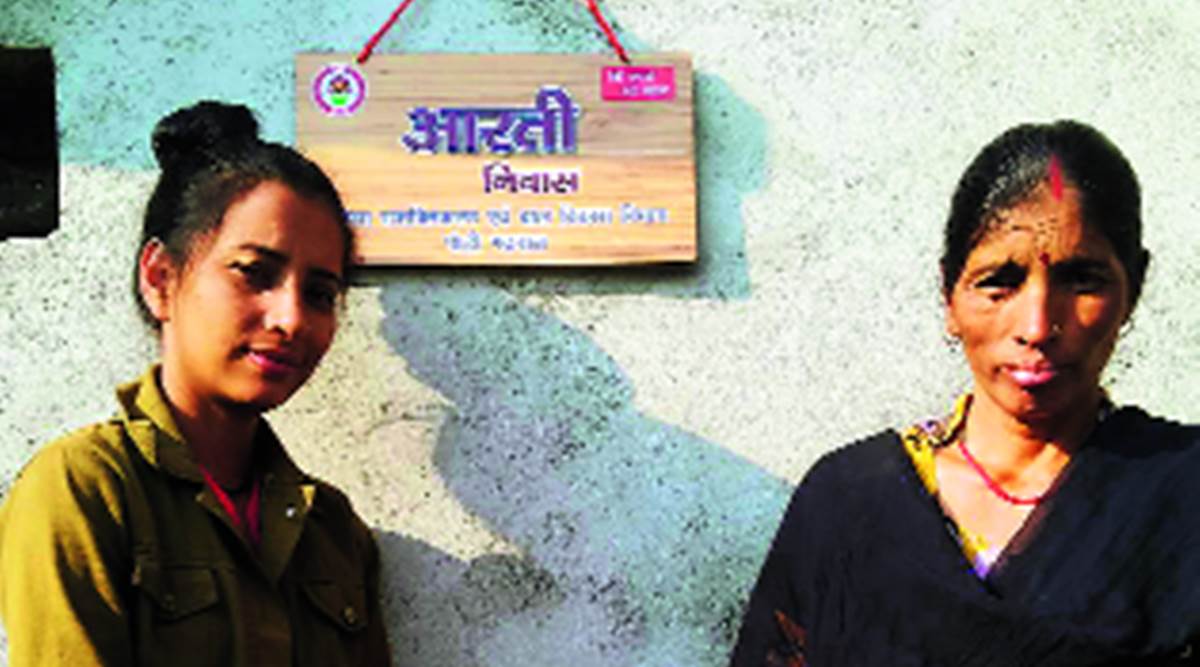 Houses named after daughters in Pauri Garhwal. (Express Photo)
Houses named after daughters in Pauri Garhwal. (Express Photo)The nameplate outside the single-storey house in Mathana village, in Uttarakhand’s hilly Pauri Garhwal district, reads ‘Aarti Niwas’. “It’s exciting when people now knock on the door and ask, ‘yeh Aarti ji ka ghar hai?’ The postman, courier guy and others ask, ‘Aarti ji ghar pe hain?’ This makes me feel very important,” says the 21-year-old.
The nameplate, part of a programme called ‘Ghaur ki Pachyan, Nauni ku Nau (Identity of the house, in the name of the daughter)’, is an effort by the district administration to create awareness about gender rights and property ownership among women and their families.
Pauri Garhwal, a district in Uttarakhand that has traditionally seen a high outward migration to the plains and to other states, has a healthy sex ratio of 1,103 women to every 1,000 men, according to Census 2011. But it’s the child sex ratio (0-6 years), an indicator of early gender discrimination, that is worrying: at 904, it is way below the state average of 963.
The administration, which has been reaching out to families and convincing them to display the names of their women members, has so far given nameplates to over 150 houses in three villages in Khirsu, Pauri and Yamkeshwar blocks.
District Chief Development Officer (CDO) Ashish Bhatgain said the programme has been started under the mass awareness component of the Centre’s ‘Beti bachao beti padhao’ programme.
Aarti’s mother Shobha says that when officials of the administration told them about the programme, she had no hesitation in proposing the name of the second of her three children, who is doing her Master’s in sociology — Shobha’s eldest child, Manish, a Class 12 dropout, is looking for a job, while her youngest, Shivani, is doing her graduation.
“When the administration gave us the nameplate, Aarti was so happy that she hammered a nail into the wall and hung it up herself,” says Shobha, an ASHA worker.
In Malli village in the district’s Pauri block, a nameplate that reads ‘Simran Nivas’ adorns the exterior wall of the single-storey house that Usha Devi, a homemaker, and her husband Mukesh Kumar, a taxi driver, share with their four children.
“Simran, 14, is my first born. Things used to be very different earlier. Now girls and boys have the same rights, and of course, we give them equal affection, care and honour. I am not going to remove that nameplate even after Simran gets married,” Usha says.
Simran, a Class 7 student, says the nameplate makes her feel important. “This small nameplate has raised my morale and self-confidence. I feel respected now. My friends in other villages are jealous because they have not got nameplates,” she says.
She hopes the nameplate is the start of more good things. “I now hope my parents will allow me to go for higher studies. Also, I want to be an actor. I hope they support me,” says Simran.
Vijaya Barthwal, Chairperson, Uttarakhand State Commission for Women, says, “Usually, women don’t claim their ancestral property and leave it to their male siblings. This programme is just a start. Having the woman’s name on the nameplate will elevate her status in the family and within society.”
Women Empowerment & Child Development Minister Rekha Arya said, “This a welcome initiative. I am taking a feedback on this. The nameplate programme will be replicated in other districts too.”